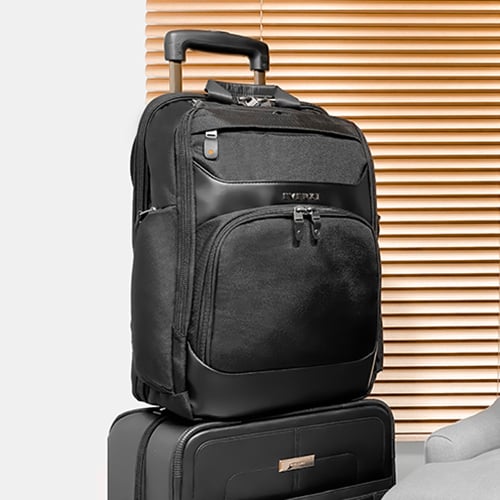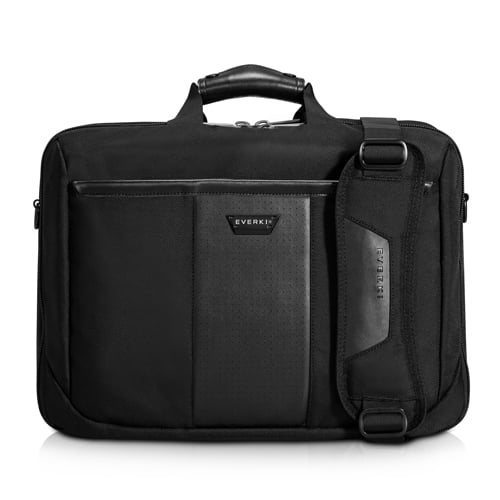How to Measure the ROI of Corporate Gifting (A Useful Guide With Examples)
Corporate gifting is a pivotal strategy for companies aiming to fortify connections, boost customer allegiance, and foster a constructive office environment. Despite its apparent benefits, precisely evaluating the return on investment (ROI) these efforts yield poses a complex challenge. Many organizations grapple with quantifying corporate gifting campaigns' tangible and intangible ROI.
This guide seeks to clarify this intricate process by providing actionable steps and illustrative examples, enabling businesses to effectively assess the success of their corporate gifting endeavours. Companies can make informed decisions by adopting a methodical approach to measure ROI, ensuring their gifting strategies contribute positively to their overall objectives and deliver measurable value. Here is all you need to know how to measure the ROI:
Understanding ROI in Corporate Gifting:

Understanding ROI in Corporate Gifting involves recognizing the unique nature of returns that corporate gifting yields, distinct from traditional investment metrics:
Non-Financial Benefits:
Corporate gifting often results in intangible benefits that are crucial but challenging to quantify. These include:
- Improved Relationships: Gifts can significantly enhance the rapport with clients, employees, and partners, fostering loyalty and potentially leading to increased business opportunities.
- Enhanced Brand Perception: Thoughtful gifting can positively influence how your brand is perceived by recipients, contributing to a stronger brand identity and reputation.
- Boosted Employee Morale: A corporate gift aimed at employees can improve workplace culture, leading to higher productivity and indirectly affecting profitability.
Challenges in Quantification:
The intangible nature of many benefits derived from corporate gifting complicates the measurement of ROI:
- Compared to traditional investments, the returns on corporate gifts sometimes have a direct financial impact that can be easily measured.
- Evaluating the success of gifting initiatives requires innovative approaches to capture the value of improved relationships and brand perception.
Broad Perspective on ROI:
Understanding ROI in the context of corporate gifting requires:
- A comprehensive view that appreciates both tangible and intangible returns.
- Recognizing the strategic value of gifting in driving long-term business success beyond immediate financial gains.
Steps to Measure Corporate Gifting ROI:

Measuring the Return on Investment (ROI) of corporate gifting is a multifaceted process that requires a strategic approach. By systematically following each step, businesses can accurately assess the effectiveness and value of their gifting programs. Here’s a more detailed exploration of each step:
1. Define Your Objectives
The foundation of any successful corporate gifting strategy begins with clear objectives. It’s crucial to understand what you aim to achieve through your gifting efforts. Objectives can vary widely, from enhancing customer loyalty and retaining top talent to reinforcing partnerships and improving brand image. By setting specific, measurable, achievable, relevant, and time-bound (SMART) goals, you create a framework that guides your entire gifting strategy, ensuring every gift has a purpose that aligns with your broader business objectives.
2. Track Your Costs
Comprehensive cost tracking is indispensable. Every component of the gifting process—whether it's the purchase price of the gifts, customization costs, packaging, or delivery fees—must be accounted for. This meticulous record-keeping does more than just help calculate ROI; it also identifies areas where costs can be optimized. For instance, you might discover that bulk purchasing or choosing a different delivery method could reduce expenses without diminishing the impact of your gifts.
3. Identify Key Performance Indicators (KPIs)
KPIs serve as the benchmarks for success, tailored to your objectives. If your goal is to enhance customer loyalty, KPIs might include metrics like repeat purchase rate, customer lifetime value, or net promoter score (NPS). For objectives centred around employee morale, you might look at engagement survey results, turnover rates, or absenteeism. The key is to select KPIs that directly reflect the outcomes you’re aiming to influence with your corporate gifting program.
4. Collect and Analyze Data
Data collection and analysis are where your planning starts to yield actionable insights. This involves gathering baseline data before the gifting program begins and follow-up data after its implementation. Surveys can capture qualitative feedback on how gifts are received by clients or employees, while sales data and performance metrics offer quantitative evidence of the program’s impact. This step may require integrating data from various sources, including CRM systems, HR software, and financial reports, to build a comprehensive picture of the program’s effects.
5. Calculate Your ROI
Calculating the ROI of corporate gifting involves comparing the program’s costs against its benefits. This calculation can be straightforward when dealing with direct financial returns but gets more complex with intangible benefits. For financial metrics, ROI can be calculated using the formula: Cost of Investment-Gains from Investment/Cost of Investment.
For intangible benefits, assigning monetary values can be challenging but not impossible. For example, an increase in customer retention can be quantified by the additional revenue generated from retained customers. Similarly, improvements in employee morale could be linked to reductions in turnover costs or increases in productivity. In some cases, businesses may use proxy measures or industry benchmarks to estimate the financial value of intangible benefits.
Examples of Corporate Gifting ROI Measurement
To illustrate, let's consider a few hypothetical examples:
- A software company launches a gifting campaign targeting long-term clients, resulting in a 10% increase in contract renewals. By comparing the cost of the gifts to the additional revenue generated, the company can calculate a clear ROI.
- A startup sends personalized gifts to its top customers, leading to a significant boost in social media mentions and referrals. The increase in brand visibility and new customer acquisition can be quantified and set against the cost of the gifts to measure ROI.
- An organization introduces a recognition program for its employees, using gifts to celebrate milestones and achievements. The subsequent improvement in employee satisfaction and productivity can be translated into monetary value and compared with the program's expenses.
Best Practices for Maximizing Corporate Gifting ROI

Maximizing the ROI of corporate gifting requires a thoughtful approach that goes beyond merely selecting and distributing gifts. By adhering to best practices that emphasize personalization, alignment with company values, and continuous measurement, businesses can significantly enhance the effectiveness and impact of their gifting strategies.
Personalization is Key:
Personalized gifts stand out, making recipients feel valued and appreciated on an individual level. This personal touch can transform a generic corporate gesture into a meaningful connection, greatly enhancing the perceived value of the gift.
Personalization can range from engraving the recipient’s name on a product to selecting gifts based on the recipient's interests or needs. This approach not only increases the likelihood of the gift being used and remembered but also strengthens the emotional bond between the giver and the recipient, amplifying ROI through deepened relationships and loyalty. Get the best and most unique corporate gift through personalized items.
Align Gifts with Company Values:
Selecting a corporate gift that reflects your company's values and culture serves a dual purpose. It reinforces your brand identity in the minds of the recipients and ensures that the gifts convey a message that resonates with your organizational ethos.
For example, a company that values sustainability might choose eco-friendly gifts, thereby reinforcing its commitment to environmental responsibility. This alignment enhances brand consistency and fosters a stronger connection with recipients who share or respect these values.
Continuous Measurement for Improvement:
Measuring the ROI of gifting is not a one-time task but a continuous process that offers valuable insights for future strategies. By consistently tracking the performance of your gifting program against set KPIs, you can identify what works well and what doesn’t, allowing for real-time adjustments and long-term improvements. This could involve refining your gift selection, personalization approach, or even the timing of gift delivery.
Continuous measurement and adjustment ensure that your corporate gifting program remains effective, relevant, and aligned with both your business objectives and the evolving preferences of your recipients.
FAQs:
1. What is Corporate Gifting ROI, and how is it Calculated?
Corporate Gifting ROI refers to the return on investment from corporate gifting programs. It measures the benefits gained from gifting, in terms of enhanced relationships, brand perception, and financial returns, against the costs incurred. ROI is calculated by comparing the value received (including increased sales, customer loyalty, or employee productivity) to the total gift program investment.
2. Why is Personalization Important in Corporate Gifting?
Personalization in corporate gifting significantly enhances the impact and perceived value of gifts. By tailoring gifts to the recipients' individual interests, needs, or preferences, companies can forge stronger connections, making recipients feel valued and appreciated. Personalized gifts are more likely to be remembered and can positively influence the recipient's perception of the company, thereby improving ROI.
3. How Can Companies Align Gifts with Their Values?
Companies can align gifts with their values by choosing items that reflect their corporate culture, ethics, and brand message. For instance, a company focusing on sustainability might opt for eco-friendly products. This alignment ensures that gifts serve as a token of appreciation and reinforce the company's identity and values, strengthening relationships with recipients who share or admire those values.
4. What Role Does Continuous Measurement Play in Maximizing Gifting ROI?
Continuous measurement is vital for understanding the effectiveness of a corporate gifting program and maximizing its ROI. By regularly assessing the program’s impact on key performance indicators (KPIs) related to the company’s gifting objectives, businesses can make informed adjustments to enhance future gifting strategies, ensuring alignment with recipient preferences and company goals.
5. Can the Intangible Benefits of Corporate Gifting be measured?
Yes, intangible benefits such as improved business relationships, employee morale, and brand perception can be measured, though it requires a more nuanced approach. Surveys, feedback forms, and engagement metrics can provide insights into the effectiveness of gifting strategies in achieving these less tangible outcomes. Over time, these qualitative measures can be correlated with quantitative results, such as increased sales or reduced turnover, to gauge the overall ROI of corporate gifting programs.
Conclusion:
Measuring the ROI of corporate gifting requires a strategic approach, beginning with establishing clear objectives and meticulous tracking of the costs and benefits.
By concentrating on providing meaningful gifts that align with your company's values and continuously refining your strategy based on performance data, your business can amplify the impact of its gifting program and guarantee a favourable return on investment.
Discover the ideal selection of corporate gifts that resonate with your business ethos and objectives at Everki. Elevate your corporate gifting strategy today by choosing Everki for gifts that leave a lasting impression. Explore our collection and find the best corporate gifts now.










